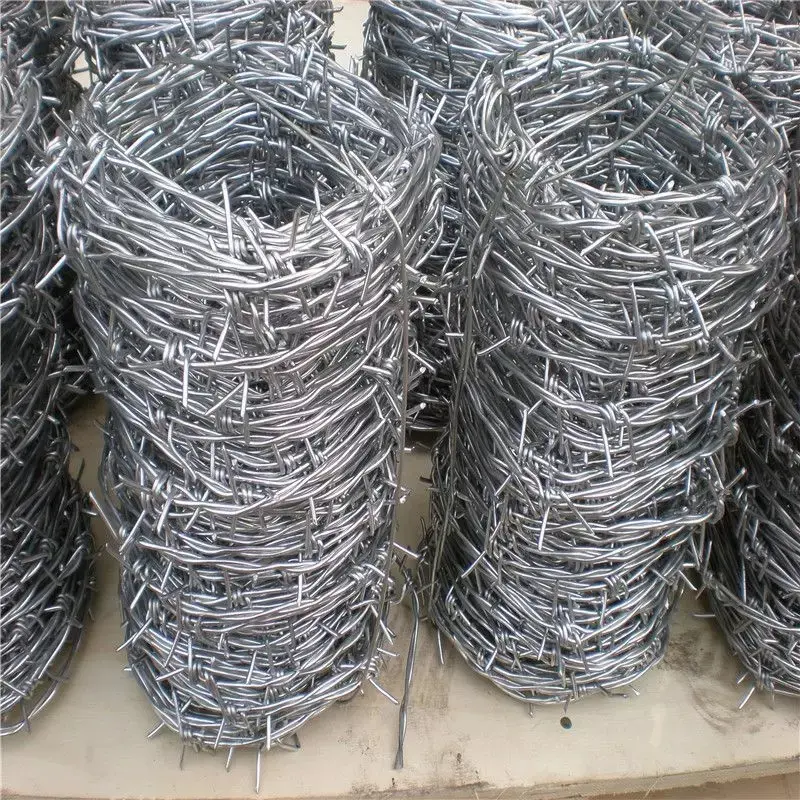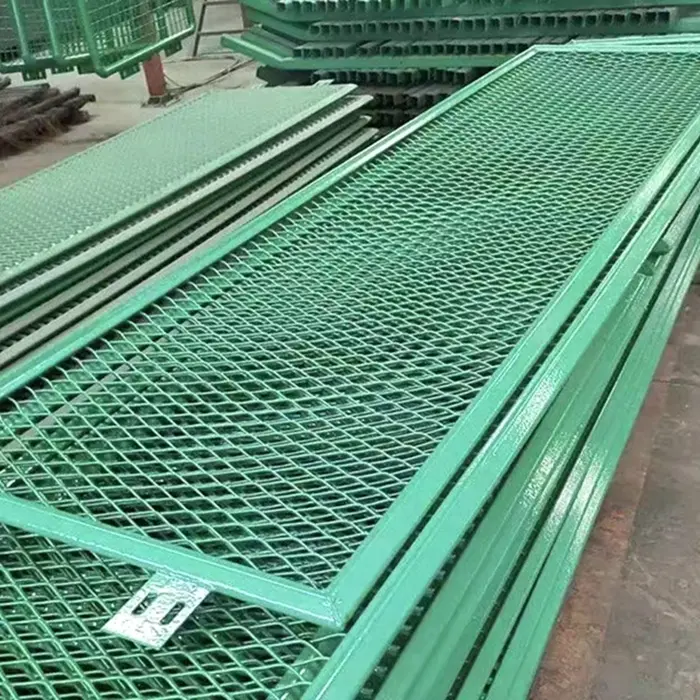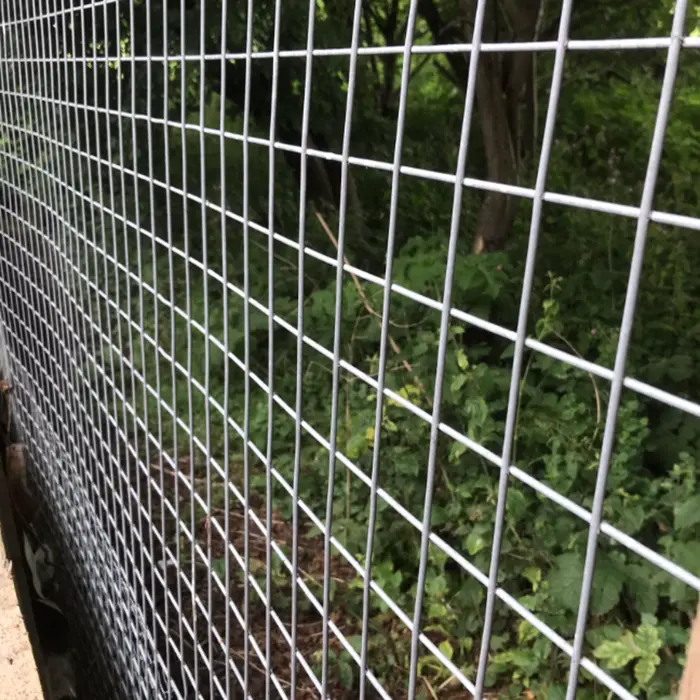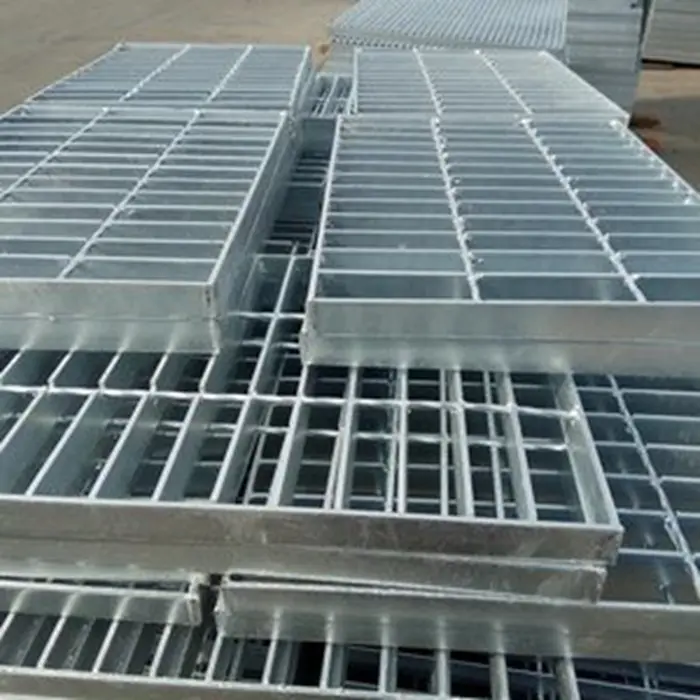The Indispensable Role of Metal Fence Rolls in Modern Infrastructure and Security
In the landscape of modern industrial, agricultural, and commercial security, the foundational element often comes down to robust perimeter protection. Among the myriad options available, metal fence rolls stand out as a highly versatile, cost-effective, and formidable solution. These essential products, encompassing variations like galvanised barbed wire and woven mesh, are critical for defining boundaries, securing assets, and ensuring public safety across a diverse range of sectors.
From agricultural applications requiring resilient barriers against wildlife to high-security installations demanding stringent access control, the demand for high-performance fence rolls continues to surge. This comprehensive guide delves into the technical intricacies, application diversity, manufacturing excellence, and strategic advantages that position these products as a cornerstone of contemporary security and infrastructure development.
Global Trends and Market Dynamics in Perimeter Security Solutions
The global market for perimeter security, within which metal fence rolls play a significant role, is experiencing steady growth driven by several macro-economic and geopolitical factors. Rising concerns over asset protection, increased industrialisation, and expansion of critical infrastructure projects across emerging economies are key accelerators. According to recent market analyses, the global perimeter security market is projected to reach approximately $25 billion by 2027, growing at a Compound Annual Growth Rate (CAGR) of 8-9% from 2022. This growth is directly fueling demand for robust, reliable, and scalable fencing solutions.
Key trends influencing this sector include:
- Heightened Security Requirements: Escalating threats from vandalism, theft, and unauthorised access necessitate advanced physical barriers. This drives innovation in materials and designs, leading to products like high-security barbed wire fence rolls.
- Urbanisation and Infrastructure Development: Rapid expansion of urban areas and significant investments in public infrastructure (e.g., highways, airports, power grids) create a persistent demand for durable and efficient fencing.
- Agricultural Protection Needs: Farmers increasingly rely on effective barriers, such as metal deer fence rolls, to protect crops and livestock from wildlife, mitigating significant economic losses.
- Technological Integration: While metal fence rolls are physical barriers, their effectiveness is often enhanced when integrated with electronic surveillance, access control systems, and smart monitoring technologies, forming comprehensive security ecosystems.
- Sustainability and Longevity: A growing emphasis on sustainable practices and long-term cost-effectiveness drives demand for materials and coatings that offer extended service life and reduced environmental impact, such as hot-dip galvanised steel.
These trends underscore the critical need for manufacturers to provide high-quality, technically superior metal fence rolls that meet diverse and evolving industrial demands.
Decoding Metal Fence Rolls: Technical Parameters and Specifications
The efficacy and suitability of any metal fence roll solution are directly tied to its precise technical specifications. Understanding these parameters is crucial for B2B procurement and engineering teams to select the optimal product for their specific application, ensuring both performance and longevity. Key technical aspects include material composition, wire gauge, coating types, and physical dimensions.
Material Composition and Metallurgical Properties
The primary material for high-quality fence rolls is typically high-strength steel wire. The choice of steel grade and subsequent treatments significantly impacts the product's tensile strength, ductility, and resistance to environmental degradation. Common types include:
- Low Carbon Steel (LCS): Offering good ductility and ease of processing, LCS wires are commonly used as the base for galvanisation.
- High Carbon Steel (HCS): Provides superior tensile strength, ideal for high-security applications where resistance to cutting is paramount. Used in certain types of barbed wire fence roll products.
- Stainless Steel: While less common due to cost, stainless steel fence rolls offer exceptional corrosion resistance in highly aggressive environments (e.g., coastal or chemical processing plants).
Wire Gauge and Mesh Configuration
Wire gauge, often measured by the American Wire Gauge (AWG) or in millimetres, denotes the wire's diameter. A lower gauge number signifies a thicker, stronger wire. For security fencing, thicker gauges (e.g., 9-gauge to 12-gauge) are preferred for enhanced deterrence and durability. Mesh configuration, whether woven, welded, or barbed, dictates the fence's permeability and anti-climb properties.
Protective Coatings and Surface Treatments
To extend the lifespan and enhance the performance of metal fence rolls, various protective coatings are applied:
- Hot-Dip Galvanisation: A zinc coating applied via hot dipping provides excellent sacrificial cathodic protection against rust and corrosion, significantly extending service life. This is a standard for robust outdoor applications.
- Electro-Galvanisation: A thinner zinc coating applied electrolytically, offering a bright finish but less corrosion resistance than hot-dip galvanisation.
- PVC Coating: A layer of polyvinyl chloride applied over galvanised wire offers enhanced corrosion resistance, UV protection, and often comes in various colours for aesthetic integration.
- Zinc-Aluminum Alloy Coating: Modern coatings like Galfan (zinc-5% aluminum alloy) provide superior corrosion resistance compared to pure zinc.
Standard Product Specifications Table for Metal Fence Rolls
These parameters directly influence the performance, durability, and cost-effectiveness of metal fence rolls, making a detailed understanding indispensable for informed decision-making.
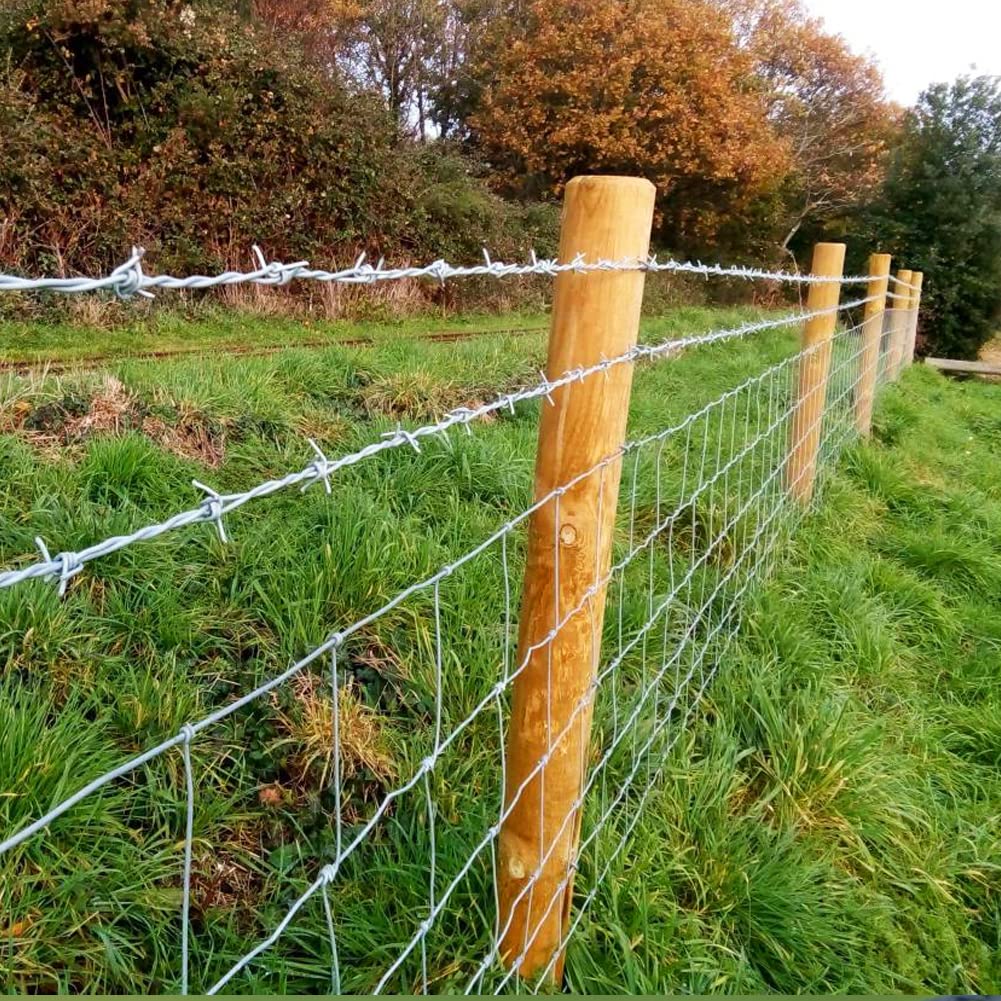
Excellence in Production: The Manufacturing Process of Metal Fence Rolls
The production of high-quality metal fence rolls is a meticulously engineered process that transforms raw steel into durable, functional, and secure fencing solutions. This multi-stage journey ensures that the final product meets stringent industry standards for strength, corrosion resistance, and longevity. While specific processes may vary slightly between plain wire mesh and barbed wire fence roll types, the fundamental principles of material preparation, fabrication, and finishing remain consistent.
1. Wire Rod Sourcing and Drawing
The process begins with sourcing high-quality steel wire rod, typically of low or high carbon steel, depending on the required tensile strength. This rod undergoes a series of cold drawing operations, where it is pulled through progressively smaller dies. This process reduces the wire's diameter, increases its tensile strength (work hardening), and improves its surface finish. Precise control over the drawing speed and die configuration is critical to achieve the desired wire gauge and mechanical properties.
2. Surface Preparation and Galvanisation
Before protective coatings are applied, the drawn wire must be meticulously cleaned to remove impurities, rust, and oils. This typically involves acid pickling, rinsing, and fluxing. Following preparation, the wire is subjected to galvanisation, a process vital for enhancing corrosion resistance:
- Hot-Dip Galvanisation: The wire is immersed in a bath of molten zinc at temperatures around 450°C (840°F). A metallurgical bond forms between the steel and zinc, creating a highly durable, corrosion-resistant coating. The thickness of this zinc layer is a critical performance indicator, often specified in grams per square meter (g/m²), directly correlating to the fence's service life.
- Electro-Galvanisation: Involves electro-depositing a thinner layer of zinc onto the wire, providing a smoother finish suitable for subsequent PVC coating, though offering less protection than hot-dip galvanisation alone.
3. Fabrication: Barbing and Weaving
This stage defines the specific type of metal fence roll:
- Barbed Wire Production: Specialised machinery twists two or more strands of galvanised wire together, and at precise intervals, barb wires (short, sharp pieces) are twisted around one or both line wires. The common barb types include 2-point, 4-point, reverse twist, and single strand, each offering varying levels of deterrence. For a High Security Barbed wire galvanized barbed wire mesh steel barb wire fence roll, the quality of barb formation and wire twisting is paramount to prevent easy cutting or untwisting.
- Woven Wire Mesh Production: For products like chain-link or field fencing, wires are interlaced or machine-knotted to form various mesh patterns. This process requires precision to ensure consistent mesh size and tension across the entire roll.
4. PVC Coating (Optional)
For enhanced durability and aesthetics, galvanised wire can be coated with PVC. This involves cleaning, priming, and then passing the wire through a PVC bath, followed by curing. The PVC layer provides additional protection against rust, UV radiation, and harsh chemicals, while also offering colour options for environmental blending or demarcation.
5. Quality Control and Packaging
Throughout the entire manufacturing process, rigorous quality control measures are implemented. These include:
- Material Inspection: Verification of raw steel composition and incoming wire rod properties.
- Dimensional Checks: Consistent wire diameter, barb spacing, and mesh aperture.
- Coating Thickness Measurement: Ensuring uniform and adequate zinc or PVC layer thickness using non-destructive testing methods (e.g., X-ray fluorescence).
- Mechanical Testing: Tensile strength, elongation, and winding tests to confirm wire integrity.
- Adhesion Testing: For PVC coated products, ensuring strong bonding between the coating and the galvanised wire.
- Corrosion Resistance Testing: Salt spray tests (e.g., ASTM B117) to simulate accelerated weathering and predict long-term performance.
Finally, the finished metal fence rolls are wound onto spools or cores, securely packaged, and labelled for dispatch. This meticulous manufacturing flow ensures that each roll meets the demanding performance requirements of B2B applications, offering superior protection and an extended service life in diverse operational environments.
Versatile Applications: Where Metal Fence Rolls Excel
The robust construction and adaptable nature of metal fence rolls make them indispensable across a spectrum of industries requiring dependable perimeter control, asset protection, and demarcation. Their diverse configurations, from simple woven mesh to formidable barbed wire fence roll types, allow for tailored solutions to meet specific security and operational challenges.
Petrochemical and Energy Sector
In environments handling volatile substances, such as oil refineries, gas processing plants, and power stations, security is paramount. Metal fence rolls, particularly those with anti-climb features and high corrosion resistance (e.g., heavy galvanisation), are deployed to secure perimeters, restrict access to hazardous areas, and protect critical infrastructure from sabotage or accidental intrusion. Their durability ensures long-term integrity in harsh industrial atmospheres.
Metallurgical and Mining Operations
Mining sites and metallurgical facilities often span vast, remote areas and contain valuable equipment and materials. Robust metal fence rolls are used to secure mining pits, processing areas, and equipment storage yards, deterring theft and unauthorized entry. The ability of galvanised steel to withstand abrasive conditions and significant temperature fluctuations makes it ideal for these demanding environments.
Water Treatment and Municipal Utilities
Public utilities, including water treatment plants, pumping stations, and electrical substations, are critical infrastructure components that require robust protection. Metal fence rolls provide a visible and effective barrier against vandalism, sabotage, and unauthorized access, ensuring the continuous and safe operation of essential services. Their low maintenance profile and long lifespan are key advantages in these typically unmanned or remotely monitored sites.
Agricultural and Rural Security
For farms, ranches, and large agricultural estates, effective fencing is crucial for livestock containment and crop protection. Metal deer fence rolls and other woven wire types are specifically designed to deter wildlife, preventing crop damage and protecting herds. The ease of installation and ability to conform to varied terrain make these rolls an efficient solution for extensive rural properties.
Commercial and Industrial Property Protection
Warehouses, manufacturing plants, logistics hubs, and storage facilities frequently utilise metal fence rolls for their perimeter security. Combined with gate systems and surveillance, they form the first line of defense against theft, trespass, and property damage. The modularity of rolls allows for flexible installation around irregular perimeters and easy repair or expansion.
Key Advantages in Typical Scenarios:
- Corrosion Resistance: High-quality galvanisation ensures fences withstand harsh weather, chemical exposure, and corrosive soils, reducing the need for frequent replacement. This is especially vital in coastal areas or chemical plants.
- Anti-Climb and Deterrence: Features like closely spaced barbs or small mesh sizes (e.g., in a barbed wire fence roll) significantly deter intruders, enhancing security posture without requiring constant human oversight.
- Durability and Impact Resistance: The inherent strength of steel wire, particularly in thicker gauges, provides resistance against physical impact from vehicles or attempts at forced entry.
- Cost-Effectiveness: While initial investment varies by specification, the long lifespan and minimal maintenance requirements of quality metal fence rolls offer a superior total cost of ownership compared to many alternative security barriers.
The adaptability and proven performance across such diverse applications solidify the position of metal fence rolls as a preferred choice for professional-grade perimeter security.
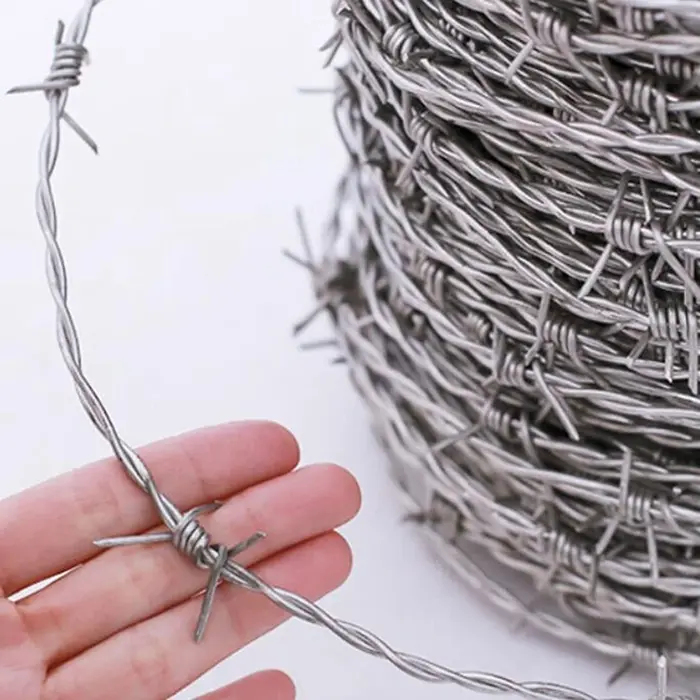
Technical Advantages of Advanced Metal Fencing Solutions
Modern metal fence rolls are engineered to offer a multitude of technical advantages that go beyond basic demarcation, providing superior security, longevity, and operational efficiency for B2B applications. These advantages stem from innovations in material science, manufacturing processes, and design optimization.
Enhanced Security Features
- Deterrent Design: The very presence of a robust barbed wire fence roll acts as a psychological and physical deterrent. Sharp barbs and tightly woven patterns make climbing extremely difficult and hazardous, significantly reducing the likelihood of casual or opportunistic intrusion.
- Anti-Climb Properties: Specific designs, such as small mesh apertures (e.g., 2-inch by 2-inch or smaller), prevent toe or hand holds, effectively eliminating climbability.
- Cut Resistance: Utilisation of high-tensile strength steel wire, often heat-treated, makes cutting with standard tools challenging and time-consuming, increasing the risk for intruders.
Superior Durability and Longevity
- Corrosion Resistance: As detailed in the manufacturing section, advanced galvanisation processes (hot-dip, Galfan) create a protective zinc layer that offers sacrificial cathodic protection, preventing steel degradation even when scratched. This extends the lifespan significantly in harsh outdoor environments, from industrial sites to coastal regions. PVC coatings further enhance this resistance, providing an additional barrier against moisture, chemicals, and UV radiation.
- Weather Resistance: Engineered to withstand extreme temperatures, high winds, heavy snow loads, and torrential rain without compromising structural integrity.
- Impact Resilience: The inherent flexibility and strength of wire mesh allow it to absorb impacts, such as from falling debris or accidental vehicle contact, better than rigid structures, reducing damage and maintenance needs.
Cost-Effectiveness Over Lifecycle
- Lower Maintenance: Due to superior corrosion resistance and inherent durability, metal fence rolls require minimal ongoing maintenance, translating to significant operational savings over decades.
- Long Service Life: With lifespans often exceeding 20-30 years for quality galvanised and PVC-coated products, the total cost of ownership (TCO) is highly competitive compared to less durable alternatives that require frequent replacement.
- Efficient Installation: Supplied in rolls, these fences are quicker and easier to install across varied terrains, reducing labour costs and project timelines compared to panel-based systems or brick walls.
Versatility and Adaptability
- Broad Application Scope: Suitable for a wide range of uses, from agricultural land demarcation with metal deer fence rolls to securing high-security industrial compounds with a robust barbed wire fence roll.
- Integration Capabilities: Easily integrates with other security technologies such as CCTV, intrusion detection systems (e.g., fence-mounted sensors), and access control, forming a multi-layered security architecture.
- Aesthetic Options: PVC coatings offer various colour choices (e.g., green, black), allowing the fence to blend into its environment or provide clear demarcation.
These cumulative technical advantages position advanced metal fence rolls as a strategic investment for any organisation prioritising long-term security, operational efficiency, and sustainable infrastructure development.
Strategic Sourcing: Comparing Metal Fence Roll Manufacturers
Selecting the right manufacturer for metal fence rolls is a critical decision for any B2B entity, impacting product quality, project timelines, and long-term cost of ownership. A thorough evaluation goes beyond initial price, encompassing manufacturing expertise, quality assurance, customisation capabilities, and post-sales support.
Key Criteria for Manufacturer Evaluation:
- Quality Certifications & Compliance: Does the manufacturer adhere to international standards such as ISO 9001 for quality management systems? Are their products tested to ASTM (American Society for Testing and Materials) or EN (European Norms) standards for material properties, galvanisation thickness, and tensile strength? A manufacturer's commitment to these standards is a direct indicator of product reliability.
- Experience and Specialisation: Longevity in the industry and a proven track record in producing diverse types of metal fence rolls (e.g., barbed wire, welded mesh, woven wire) signify deep expertise. Companies with decades of experience often possess superior manufacturing techniques and quality control.
- Manufacturing Capacity and Lead Times: For large-scale projects, the manufacturer's ability to meet volume demands within specified timelines is crucial. This includes raw material sourcing, production efficiency, and logistics.
- Customisation Capabilities: Can the manufacturer provide bespoke solutions for unique project requirements, such as specific wire gauges, roll dimensions, coating types, or barbed configurations? Flexibility in customisation is a major advantage for complex industrial applications.
- Technical Support and After-Sales Service: Access to expert technical consultation, clear warranty terms, and responsive customer support are vital for long-term partnership and problem resolution.
- Environmental and Ethical Practices: Increasingly, B2B buyers consider a manufacturer's commitment to sustainable production, responsible sourcing, and ethical labour practices.
Product Comparison Table: Hot-dip Galvanized vs. PVC Coated Barbed Wire Fence Roll
This comparison highlights that while hot-dip galvanised products offer excellent value and robust protection, PVC-coated options provide an additional layer of defence and aesthetic flexibility for specific project requirements, particularly where extreme environmental exposure or visual integration is a concern. Diligent manufacturer selection based on these criteria ensures access to superior metal fence rolls that deliver maximum value and performance.
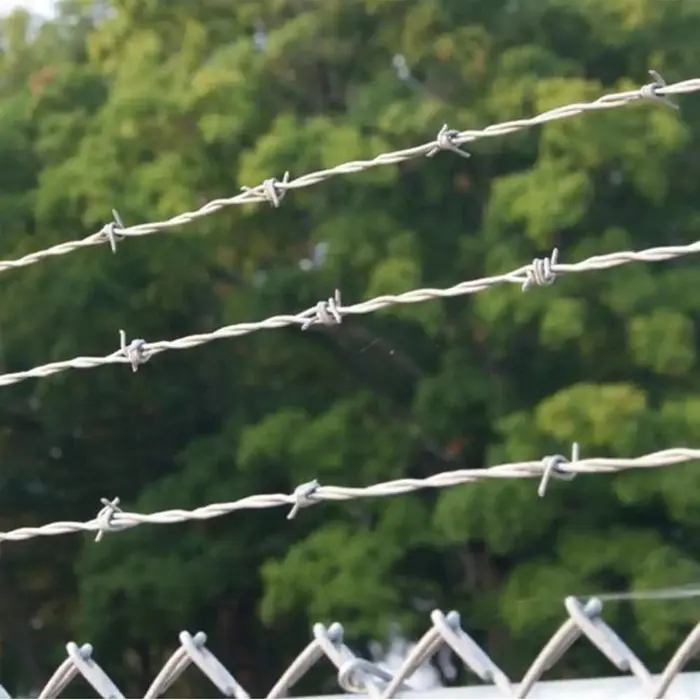
Tailored Security: Customization and Solution Design for Metal Fence Rolls
In the complex realm of B2B security and infrastructure, one-size-fits-all solutions are rarely optimal. Recognising this, leading manufacturers of metal fence rolls offer extensive customisation options, allowing clients to procure fencing solutions precisely engineered to their unique project specifications, environmental conditions, and security threat levels. This bespoke approach ensures maximum effectiveness and cost-efficiency.
Key Customization Parameters:
- Wire Gauge and Tensile Strength: Custom gauges can be specified to meet precise security requirements, from lighter gauges for agricultural metal deer fence rolls to heavy-duty, high-tensile wire for critical infrastructure protection.
- Roll Dimensions (Height & Length): While standard sizes are common, projects often require specific heights (e.g., anti-climb extensions) or custom roll lengths for efficient installation over varied terrains or to minimise waste.
- Coating Specifications: Beyond standard hot-dip galvanisation, clients can specify zinc coating weight (e.g., Class A, Class B, or Z275+), the type of galvanisation (e.g., electro, hot-dip, zinc-aluminum alloy), or precise PVC coating thickness and colour to match brand guidelines or blend into the environment.
- Barb Configuration (for Barbed Wire): For a barbed wire fence roll, customisation includes barb spacing (e.g., 3-inch, 4-inch, 5-inch), barb points (2-point, 4-point), and strand configuration (single strand, double strand, reverse twist), each influencing deterrence effectiveness.
- Mesh Type and Aperture (for Woven/Welded Mesh): Different mesh patterns (e.g., chain link, field fence, welded mesh) and specific opening sizes can be designed to prevent passage of certain animals or objects, or to integrate with specific detection systems.
- Material Grade: In highly corrosive environments, specification of marine-grade galvanisation or even stainless steel can be custom-ordered to ensure maximum longevity and performance.
The Customization Process: A Collaborative Approach
A reputable manufacturer will engage in a collaborative design and consultation process to ensure the customised metal fence rolls meet all project requirements:
- Needs Assessment: Detailed discussion of the project site, security risks, environmental factors, regulatory compliance, and budget.
- Technical Specification Development: Jointly developing precise technical drawings and material specifications. This might involve engineering recommendations based on wind load, soil conditions, or specific threat assessments.
- Prototyping & Testing (Optional): For highly unique or critical applications, a manufacturer may produce samples for client evaluation and independent testing.
- Production & Quality Assurance: Manufacturing the customised rolls under strict quality control protocols, ensuring consistency and adherence to specifications.
- Logistics & Delivery: Coordinated delivery schedules to align with project timelines, often involving specialised packaging for custom dimensions.
This ability to tailor solutions is particularly valuable for large infrastructure projects, government contracts, and specialised industrial facilities where off-the-shelf products may fall short of stringent performance or regulatory demands. By partnering with a manufacturer offering robust customisation, clients can achieve optimised security solutions that deliver superior protection and long-term value from their investment in metal fence rolls.
Real-World Impact: Application Case Studies and Success Stories
The tangible benefits of high-quality metal fence rolls are best illustrated through their successful deployment in real-world scenarios. These case studies highlight how robust fencing solutions address complex security challenges, protect valuable assets, and ensure operational continuity across diverse industries. While client names are omitted for confidentiality, the scenarios represent common B2B applications where our High Security Barbed Wire Galvanized Barbed Wire Mesh Steel Barb Wire Fence Roll and similar products have proven invaluable.
Case Study 1: Securing a Remote Telecommunications Hub
Challenge: A telecommunications provider needed to secure a new, critical cellular transmission hub located in a remote, rural area prone to vandalism and copper theft. The site required a cost-effective, durable perimeter that could withstand harsh weather and deter opportunistic intruders, with minimal maintenance. Traditional chain-link was deemed insufficient due to its vulnerability to cutting.
Solution: A high-tensile barbed wire fence roll, featuring 4-point barbs and heavy hot-dip galvanisation, was selected. The fence was installed to a height of 2.4 meters (8 feet), with additional barbed wire topping for enhanced deterrence. The robustness of the galvanised coating ensured long-term corrosion resistance without regular painting or maintenance, ideal for the remote location.
Outcome: Within the first year, reported incidents of attempted intrusion dropped by over 90%. The formidable appearance and physical difficulty of breaching the fence served as a significant deterrent. The client reported substantial savings in security personnel deployment and equipment replacement costs. The metal fence roll solution provided a robust, low-cost-of-ownership security perimeter.
Case Study 2: Wildlife Exclusion for a Commercial Vineyard
Challenge: A rapidly expanding vineyard faced significant economic losses due to deer and other wildlife grazing on young vines, especially during critical growth phases. Existing partial fencing was ineffective. The solution needed to be tall enough to deter deer, visually unobtrusive, and durable enough to last decades in a rural agricultural setting.
Solution: A specialised metal deer fence rolls, made from high-tensile, graduated-mesh wire with a dark green PVC coating, was installed. The graduated mesh provided smaller openings at the bottom to deter smaller animals, gradually widening towards the top. The PVC coating allowed the fence to blend seamlessly with the natural landscape, preserving the vineyard's aesthetic appeal, while offering superior corrosion and UV resistance.
Outcome: Crop damage from wildlife was virtually eliminated after the installation. The vineyard reported a significant increase in harvest yields and overall profitability. The durable construction and discreet appearance of the metal fence roll solution perfectly met both functional and aesthetic requirements, showcasing the versatility of these products.
Case Study 3: Perimeter Reinforcement for an Industrial Chemical Storage Facility
Challenge: An industrial facility storing hazardous chemicals required an upgrade to its perimeter security to meet heightened regulatory standards and mitigate risks of accidental or malicious intrusion. The environment was highly corrosive due to chemical vapours and frequent cleaning agents. The existing fencing showed signs of rust and needed regular repair.
Solution: A bespoke solution utilising heavily galvanised metal fence rolls with an additional thick PVC coating was specified. The design included specific heights and post spacing to integrate with new sensor systems. Special attention was paid to the quality of the galvanisation and PVC bonding to ensure maximum resistance to the corrosive atmosphere.
Outcome: The new fencing system provided a robust, multi-layered security barrier that significantly exceeded regulatory compliance requirements. After five years, the fence showed no signs of corrosion or degradation, drastically reducing maintenance costs and improving overall site safety. The project demonstrated how customised metal fence rolls, when chosen with expert material selection, can perform exceptionally even in the most demanding industrial settings.
These examples underscore the adaptability and proven effectiveness of high-quality metal fence rolls in addressing diverse B2B security and operational needs, delivering tangible value and peace of mind.
Ensuring Trust: Quality Assurance, Delivery, and Customer Support
For B2B buyers of metal fence rolls, confidence in a supplier extends beyond product specifications to encompass the entire customer journey: from stringent quality assurance and reliable delivery to comprehensive after-sales support and clear warranty provisions. A truly trustworthy partner integrates these elements seamlessly into their operations.
Rigorous Quality Assurance and Industry Certifications
Our commitment to quality is underpinned by adherence to globally recognised standards and continuous internal validation. This ensures that every metal fence roll leaving our facility meets or exceeds industry benchmarks:
- ISO 9001:2015 Certification: Our manufacturing processes are certified under ISO 9001:2015, ensuring a robust Quality Management System that covers everything from raw material procurement to final product inspection. This international standard guarantees consistency and a commitment to continuous improvement.
- Adherence to ASTM & EN Standards: Products are manufactured and tested in accordance with relevant American Society for Testing and Materials (ASTM) and European Norms (EN) standards. This includes:
- ASTM A123 / A153 (for galvanisation thickness and uniformity)
- ASTM F668 (for PVC coated chain-link fence fabric)
- ASTM A641 (for zinc-coated carbon steel wire)
- EN 10223 (for steel wire and wire products)
- In-House Testing Facilities: We conduct comprehensive in-house testing, including tensile strength tests, zinc coating adherence tests (e.g., wrap test), salt spray corrosion tests (ASTM B117), and dimensional accuracy checks, guaranteeing that each batch performs as expected under varied conditions.
Transparent Delivery and Logistics
Understanding the critical nature of project timelines, we prioritise efficient and transparent delivery processes:
- Optimised Lead Times: Leveraging advanced production planning and inventory management, we offer competitive lead times, ensuring that your metal fence rolls are ready for dispatch when you need them. For large or custom orders, detailed production schedules are provided.
- Global Logistics Network: Our established network of freight partners enables reliable and cost-effective shipping to locations worldwide, accommodating various delivery terms (FOB, CIF, DDP).
- Secure Packaging: All fence rolls are securely packaged to prevent damage during transit, using durable materials that protect coatings and wire integrity, whether transported by road, rail, or sea.
- Real-Time Tracking: For larger shipments, clients can often access real-time tracking information, providing visibility and peace of mind from dispatch to delivery.
Comprehensive Customer Support and Warranty
Our commitment extends beyond the sale, with robust support structures designed to ensure customer satisfaction and product longevity:
- Dedicated Account Management: Each B2B client is assigned a dedicated account manager who serves as a single point of contact for inquiries, technical support, and order management.
- Technical Consultation: Our team of technical experts is available to provide pre-sales consultation, assisting with product selection, customisation, and installation best practices for all types of metal fence rolls.
- Warranty Coverage: We offer comprehensive warranty periods on our metal fence rolls, typically ranging from 15 to 30 years depending on the product and coating (e.g., a High Security Barbed wire galvanized barbed wire mesh steel barb wire fence roll might have a 20+ year warranty for its galvanised coating). Specific warranty details are provided with each quotation, covering manufacturing defects and premature corrosion.
- Responsive After-Sales Service: Our support team is equipped to handle post-delivery inquiries, provide troubleshooting assistance, and facilitate any necessary claims efficiently and professionally.
Frequently Asked Questions (FAQ)
To further assist our B2B partners, here are answers to common questions about metal fence rolls:
Q1: What is the primary difference between hot-dip galvanised and PVC-coated metal fence rolls?
A1: Hot-dip galvanised rolls feature a thick zinc coating, providing excellent sacrificial corrosion protection. PVC-coated rolls have an additional plastic layer over galvanised wire, offering superior corrosion resistance, UV protection, and aesthetic colour options. PVC typically extends lifespan in very harsh conditions but comes at a higher initial cost.
Q2: How do I determine the correct wire gauge for my project?
A2: The wire gauge (thickness) should be chosen based on the required level of security and intended application. Thicker gauges (e.g., 9-gauge) provide higher strength and cut resistance for security perimeters, while thinner gauges (e.g., 12.5-gauge to 15.5-gauge) may suffice for general demarcation or agricultural fencing like metal deer fence rolls. Consult our technical team for specific recommendations.
Q3: Can metal fence rolls be integrated with electronic security systems?
A3: Absolutely. Our metal fence rolls, including barbed wire fence roll options, serve as excellent physical barriers that can be seamlessly integrated with fence-mounted intrusion detection systems, CCTV, and access control solutions to create a comprehensive, multi-layered security system. Proper grounding and insulation practices are essential for such integrations.
Q4: What is the typical lead time for a large order?
A4: Lead times vary depending on product type, customisation requirements, and order volume. For standard metal fence rolls, typical lead times range from 3-6 weeks. Custom or very large orders may require 8-12 weeks. We recommend contacting our sales team directly for precise lead time estimates based on your specific project needs.
Q5: What are the main benefits of choosing a manufacturer with ISO 9001 certification?
A5: ISO 9001 certification signifies that a manufacturer has implemented a rigorous Quality Management System. This ensures consistent product quality, adherence to specifications, efficient processes, and a commitment to customer satisfaction and continuous improvement. It provides an independent assurance of reliability and trustworthiness in their production of metal fence rolls.
This holistic approach to quality, logistics, and support underlines our dedication to being a reliable and trusted partner for all your B2B fencing requirements.
Conclusion: The Enduring Value of High-Performance Metal Fence Rolls
As industries evolve and security threats become more sophisticated, the demand for robust, adaptable, and long-lasting perimeter solutions continues to grow. High-quality metal fence rolls, from versatile woven wire to formidable barbed wire fence roll products, have unequivocally established themselves as an indispensable component of modern security and infrastructure. Their inherent strength, enhanced by advanced galvanisation and PVC coatings, delivers unparalleled durability and resistance to environmental degradation, translating into significantly extended lifespans and reduced maintenance costs.
From safeguarding critical petrochemical facilities and securing expansive agricultural lands with metal deer fence rolls to protecting urban utilities and industrial complexes, these products offer a technically sound, cost-effective, and highly customisable barrier solution. The meticulous manufacturing processes, adherence to international quality standards (like ISO and ASTM), and comprehensive post-sales support offered by leading suppliers further reinforce their value proposition.
Investing in professionally manufactured metal fence rolls is not merely a purchase; it is a strategic decision that fortifies assets, enhances safety, and contributes to the long-term operational resilience of any enterprise. By choosing a partner committed to excellence in material science, production, and customer service, businesses can ensure they are equipped with perimeter solutions that stand the test of time and evolving security landscapes.
Authoritative References
- American Society for Testing and Materials (ASTM) International. "Standard Specifications for Zinc-Coated (Galvanized) Steel Barbed Wire." ASTM A121/A121M.
- ISO (International Organization for Standardization). "Quality management systems — Requirements." ISO 9001:2015.
- European Committee for Standardization (CEN). "Steel wire and wire products — Non-ferrous metallic coatings on steel wire — Part 2: Zinc or zinc alloy coatings." EN 10244-2:2009.
- Galvanizers Association. "Corrosion Protection by Hot Dip Galvanizing."
- Perimeter Security Market: Global Industry Trends, Share, Size, Growth, Opportunity and Forecast 2022-2027. (Market Research Report Excerpt).


